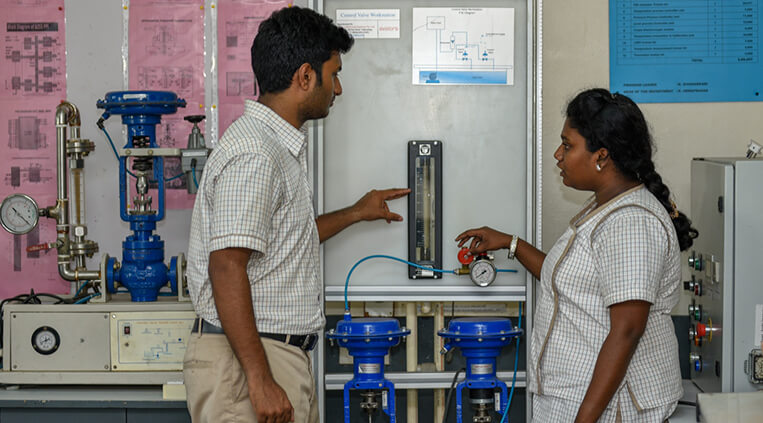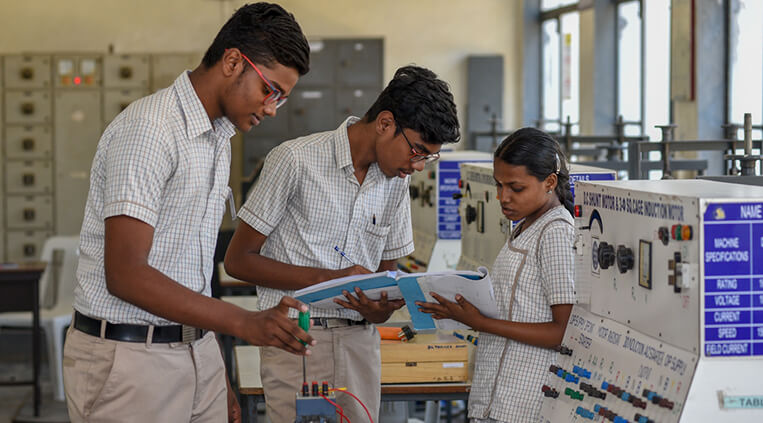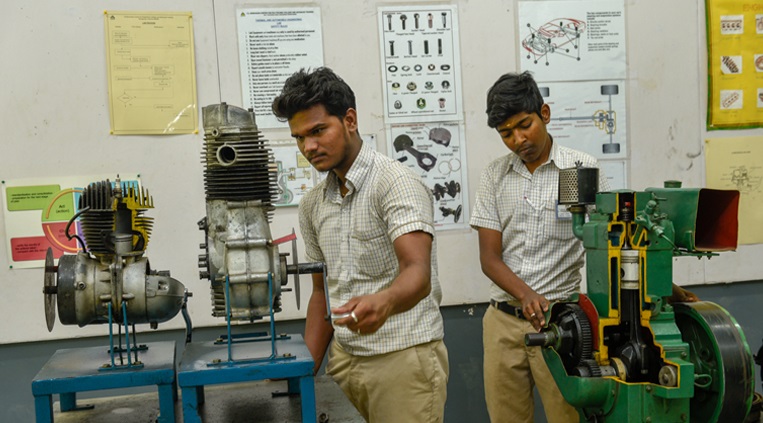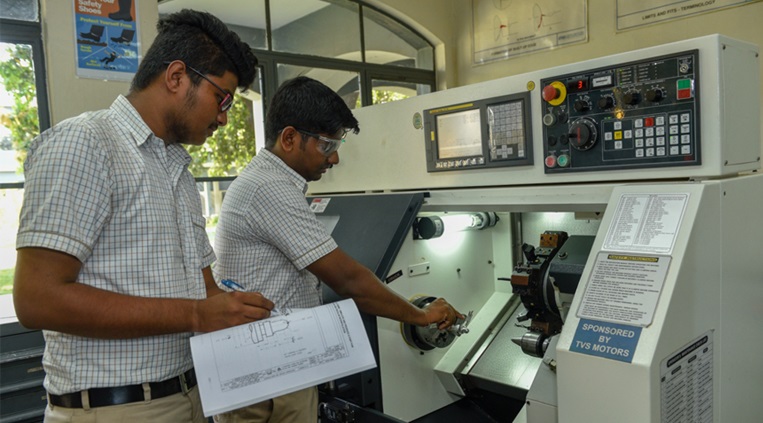OVERVIEW
CPAT offers a Sandwich Diploma Program of 3½ years in Mechanical Engineering, Mechatronics, and Robotics & Automation.
Students who have successfully completed the 10th grade exam, of either the State Board Exams or the Central Board Exams, are eligible for admission.
Students who have successfully completed the 12th grade of the State Board Exams or the Central Board Exams are eligible for a lateral entry into the second year of the Diploma Program.
CPAT also offers a Regular Diploma program in Computer Engineering & IoT.
This program will only admit students who have completed their 12th grade Board exams. They will be admitted into direct second year under lateral entry scheme.
Highlights
The CPAT Diploma Programs prepare all students for a diverse array of employment opportunities or to pursue further education.
Continual revision and upgradation of the curriculum ensure exposure of students to new technology and new industrial practices in the Manufacturing, Engineering, and Service sectors.
Students study under experienced faculty members and industrial experts.
THE SANDWICH DIPLOMA PROGRAM
The course of study in the Sandwich Programs seamlessly combines theory in the classroom with practical application in the workshop and training in the industry.
The duration of the training program in each of the following fields is 3½-years comprising 7 semesters, each semester comprises of 6 months. The content of the courses offered in the three fields listed below is prescribed by the DoTE.
In the Sandwich Program, students in the 4th & 7th semesters undergo in-plant training (IPT) at participating industries, in maintenance-oriented vocations with an emphasis on engineering & manufacturing type activities. In the IPT they apply theory and hands-on skills learned at CPAT to real-time industrial situations.
Students receive an attractive stipend during the in-plant training in industries.
The Regular Program
CPAT offers a 3-year Regular Program in:
The duration of the Regular Program in this above field is 3 years, comprising 6 semesters, each semester consisting of 6 months.
This program will only admit students who have completed their 12th grade Board exams. They will be admitted into the second year.
Regular Program students cannot participate in the in-plant training program offered in the Sandwich Program.
Special Courses
CPAT has designed special courses that are included in all four Diploma programs. These Special Programs provide the students with knowledge and skills in Designing and Troubleshooting of Electrical Control Circuits, Designing and Programming of Industrial Robotic Systems, Designing and Implementing Industrial Automation systems with Pneumatic & Hydraulic circuits, Embedded-C Programming, Python programming for Machine learning, Welding and PCB Soldering, PLC and CAD / CAM at a higher level to enhance their employability in meeting the needs of quality conscious manufacturing, engineering, and service industries.
CPAT also offers unique opportunities for personal growth and development through practices in yoga and meditation, and philosophy courses where students explore complex social issues and personal concerns through dialogues and discussions.
PROGRAM OUTCOMES (POs)
-
PO.1: BASIC AND DISCIPLINE SPECIFIC KNOWLEDGE: Apply knowledge of basic mathematics, science and engineering fundamentals and engineering specialization to solve the engineering problems
-
PO.2: PROBLEM ANALYSIS: Identify and analyse well-defined engineering problems using codified standard methods
-
PO.3: DESIGN/ DEVELOPMENT OF SOLUTIONS: Design solutions for well-defined technical problems and assist with the design of systems components or processes to meet specified needs
-
PO.4: ENGINEERING TOOLS, EXPERIMENTATION AND TESTING: Apply modern engineering tools and appropriate technique to conduct standard tests and measurements
-
PO.5: ENGINEERING PRACTICES FOR SOCIETY, SUSTAINABILITY AND ENVIRONMENT: Apply appropriate technology in context of society, sustainability, environment and ethical practices
-
PO.6: PROJECT MANAGEMENT: Use engineering management principles individually, as a team member or a leader to manage projects and effectively communicate about well-defined engineering activities
-
PO.7: LIFE-LONG LEARNING: Ability to analyse individual needs and engage in updating in the context of technological changes



